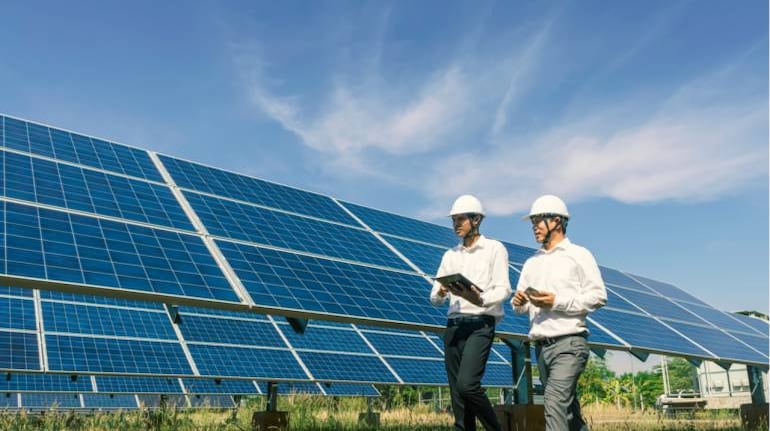



The Approved List of Models and Manufacturers (ALMM), an Indian non-tariff barrier (NTB), has come into effect from April 1, kickstarting the much awaited support for India’s solar manufacturing industry.
The ALMM mandate requires solar projects awarded by central nodal agencies and state distribution utilities to source photovoltaic (PV) modules only from manufacturers included in the ALMM list. This comes after local manufacturers lobbied for support from the government as they lost market share to cheap imports.
Praveer Sinha, CEO of Tata Power, said that the order comes at an important juncture of India's energy transition journey, where Central Public Sector Undertakings (CPSUs) are expected to float tenders for 50 GW of renewable energy (RE) projects each year in order to achieve India's goal of having 500 GW of non-fossil source based electricity generation capacity.
"Many more solar manufacturing plants are scheduled to come up at the end of FY25 or 26. Through Tata Power's 4 GW of module manufacturing capacity, which has now been operationalised, we are also hoping to help in the government's domestic rooftop solar scheme," Sinha told Moneycontrol.
Of the 500 GW non-fossil source based electricity generation capacity planned by 2030, the government aims to generate at least 300 GW solely through solar power.
Hitesh Doshi, Chairman, Waaree group, one of India's largest manufacturers of solar PV modules with an aggregate installed capacity of 12 GW, said implementation of the ALMM order will now push the solar industry to invest more on backward integration and research & development (R&D) in India.
"Imposition of the ALMM is set to make India the next big solar manufacturing hub. For the past 10 years, 90 percent of the modules used in India have been imported. This was happening despite the ALMM list having 60-70 module manufacturers all this while, even though the order was not implemented in letter and spirit until now," Doshi told Moneycontrol.
"India's solar module manufacturing capacity was always at least three times higher than the on-ground solar installations in the country. But still, domestic manufacturing, or domestic modules, did not take off because of unfortunate policy decisions of the government. The policies were allowing imports from China directly or indirectly, because of which the domestic solar industry's employment, R&D, service, and backward integration was suffering for the last 15 years," he said, adding that with the imposition of the ALMM, the domestic industry will finally start getting business.
India had an installed solar power capacity of 75.57 GW as of Feb 2024, and around 90 percent of these have imported modules, according to industry players.
The ALMM order mandating procurement of solar modules from domestic manufacturers was kept in abeyance for FY24 in view of low supplies of modules, and its eventual impact on solar capacity addition.
The ALMM was recently updated with 3,501 MW of additional manufacturing capacity, and it now has 81 module manufacturers. In its order dated March 29, 2024, the Ministry of New and Renewable Energy (MNRE) also stated that cases where solar modules have reached the project site by March 31, 2024, but the project has not been commissioned yet due to reasons beyond the control of the renewable power developers, would be examined separately (as to whether the ALMM mandate can be applied to them).
Moneycontrol was the first to report on December 7, 2023, that the government planned to implement the ALMM norms from April.
A senior official from an upcoming solar module manufacturing firm, speaking on condition of anonymity, said the imposition of ALMM will also help a number of fence-sitters to start investing in setting up such units in India.
In order to cut imports and boost local manufacturing, India had started levying a 40 percent customs duty on solar modules, and 25 percent on solar cells, from April 2022. But the move did not boost indigenous solar manufacturing, even as installations of solar projects continued to grow.
Discover the latest Business News, Sensex, and Nifty updates. Obtain Personal Finance insights, tax queries, and expert opinions on Moneycontrol or download the Moneycontrol App to stay updated!
Find the best of Al News in one place, specially curated for you every weekend.
Stay on top of the latest tech trends and biggest startup news.